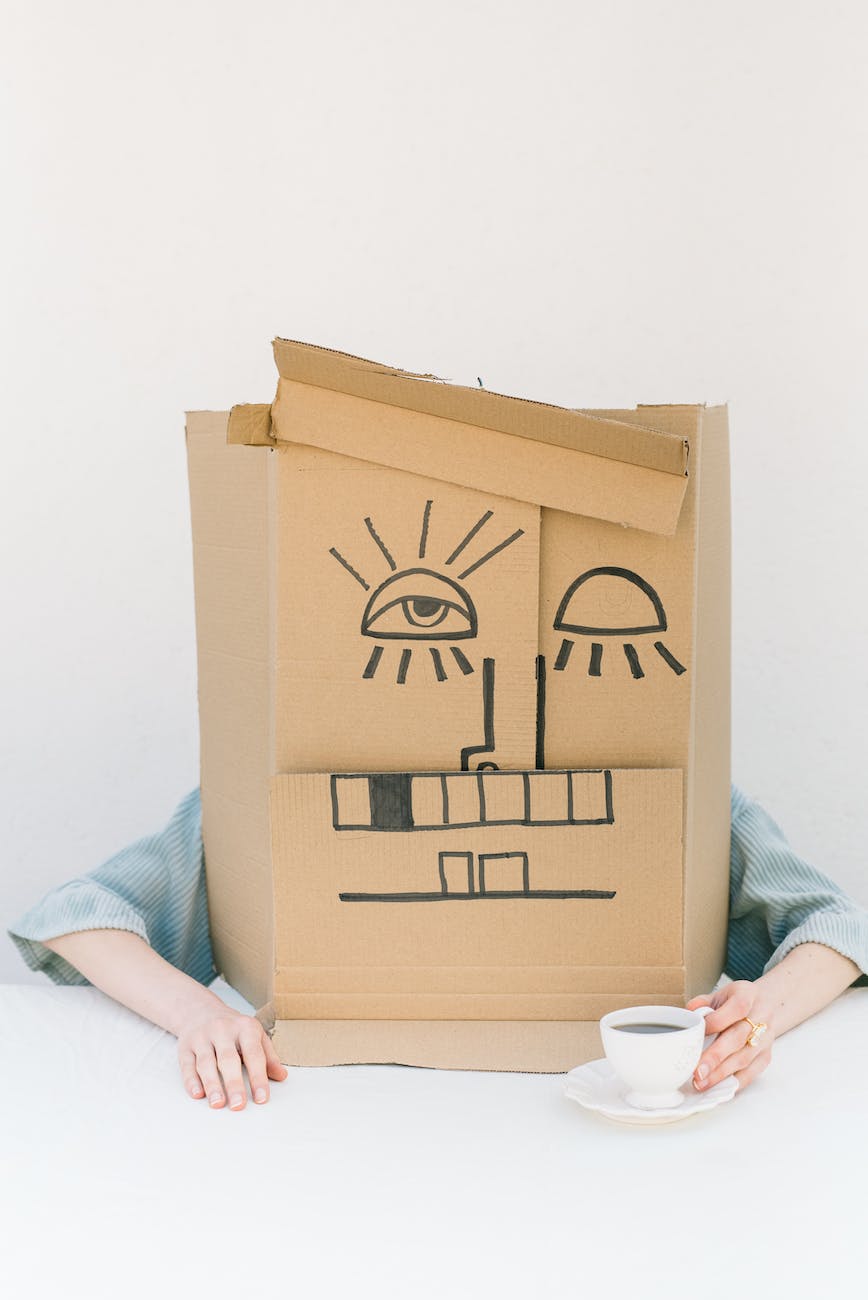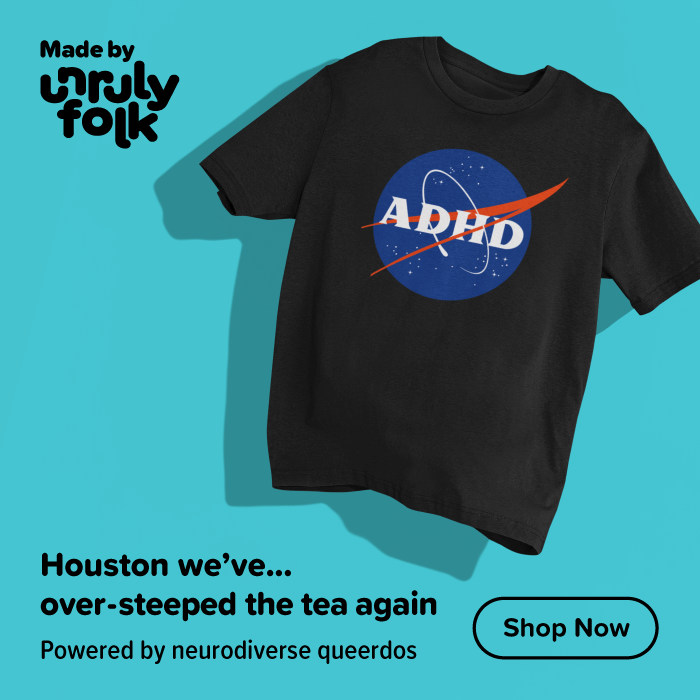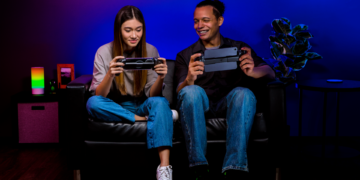I was diagnosed with an “Autistic Spectrum Condition” six years ago. It was a relief, in a way, to finally have an answer for why I’d always felt a bit out of step with the world around me. However, it was also a source of confusion, frustration and longing for time lost.
I realised I’d felt I wasn’t “good enough” my entire life when I needn’t have. The standards of a neurotypical person were not meant for me. I was never going to be that person. I wish I’d been able to spend that time embracing and discovering who I was instead of falling into a perpetual cycle of self-hate and shame.
In this post, I want to talk about what it’s like to find out you’re autistic or neurodivergent later in life. I’ll also offer some resources for people in a similar situation.
Realising you might be neurodivergent
The first clue that something was different came when I was reading books about animals. I was fascinated by animals’ distinct personalities and behaviours and started to see myself in some of them. That might sound odd, but it was the first time I felt I could relate to someone (or something) outside my immediate family. Animals are easy to read when you know how. Once you do, it’s clear that they don’t often deviate from their patterns and routines, making them predictable and safe. There are no strange societal norms and subtexts in which humans are expected to partake. As a result, animals make sense to me in a way that people rarely do.
I began to wonder if maybe I wasn’t quite like other people. When I tried talking about it with my family or friends, I was met with disbelief or even ridicule. I have cousins who are autistic, but I wasn’t “like them” or like the neighbour or those kids in that documentary.
So, I learned to keep my thoughts to myself and try to fit in as best I could. When that inevitably failed, I learned to isolate myself and limit the chance of the unexpected, which worked pretty well for a while, but it was only a short-term fix. If I could control everything, I’d rarely have a meltdown. But that’s not how life works. The second my routine was challenged, it became evident that I couldn’t cope and needed help transitioning into adulthood. I needed a name for it. I needed a diagnosis.
The world is confusing and overwhelming when you’re not sure how you’re supposed to function.
As an adult, I started to piece things together a bit better. I began to understand that how I process information and interact with the world differs from most people. I needed to throw out the neurotypical rulebook and discover my own coping mechanisms.

I’m sensitive to sound, light, and touch, making crowded places or busy times of the day very difficult. You’ve probably heard that before, but something I don’t often see people talking about is the aftermath. I might appear to cope very well in these circumstances, but being overstimulated and masking is exhausting. It can take days to recharge and recover from, often with severe fatigue and headaches, so I need to plan accordingly and listen to my limits.
I also have difficulty understanding social cues and nonverbal communication, leading to misunderstandings and awkward situations. Then comes the anxiety from the trauma of “getting it wrong”. I became more aware that I tend to fixate on things or get “stuck” in repetitive behaviours when stressed and sometimes have difficulty regulating my emotions. My idiosyncrasies made me feel like an outsider, but I didn’t know how to explain them or put them into words.
Being neurodivergent doesn’t mean we’re less capable or intelligent than anyone else. On the contrary, there are many typically “successful” autistic people. Success is subjective. I don’t think our perceived productivity should dictate our value as humans. Still, it is comforting to know that there are people like me thriving in a wide range of careers and interests.
Some challenges come along with being neurodivergent, but there are also many positive aspects to it. For example, I’m passionate and dedicated when I enjoy something and research it within an inch of its life. In addition, I have a strong sense of justice and morals, making me a loyal and trustworthy friend.
If you’re neurodivergent or think you might be, know that you’re not alone. There are many resources and support groups for people like us.
What is neurodiversity?
Neurodiversity is the idea of a natural range of differences in human brain function and behavioural traits. Just as there is a range of biological diversity among humans, so is there a range of cognitive diversity.
Autistic rights advocate Judy Singer first coined the term in the late 1990s. Judy challenged the idea that autism and other neurodivergent conditions are illnesses or disorders that need to be cured. Instead, Singer argued, neurodiversity should be viewed as a natural variation in the human brain.
Since then, the term has been adopted by many others in the autistic and neurodivergent community and their allies. It’s often used as a rallying cry for acceptance and inclusion.
What it’s like to be diagnosed later in life
It’s not uncommon for people with autism or other neurodivergent conditions to go undiagnosed until later in life. This is especially true for women, who are often better at masking their symptoms.
Getting diagnosed can be long and frustrating; there will be ups and downs and maybe even a mourning period, but it can also be a celebration, liberating you and changing your life for the better.
Finally, understanding my differences has helped me make peace with some things that have always been difficult. It’s also given me the self-awareness and tools to grow, a greater connection to the neurodivergent community and a better understanding of my identity.
If you think you might be neurodivergent:
1. Educate yourself about neurodiversity and familiarise yourself with some common signs and symptoms of neurodivergent conditions. Comorbid conditions are also highly likely.
2. Next, reach out to a trusted friend or family member and talk to them about your concerns. Having someone to talk to who will understand and support you can be helpful. If you don’t have anyone to turn to or don’t feel ready, Facebook groups will allow you to post anonymously, and there’s a welcoming community on Twitter.
3. Finally, once you’ve decided whether or not you want to seek a formal diagnosis, make an appointment with your doctor or a mental health professional to discuss your suspicions.
Getting a diagnosis is not necessary for everyone, but it can be helpful for many people. It can provide clarity, validation, and a sense of belonging. It can also open the door to greater understanding and acceptance from others and ourselves.
For many people who are neurodivergent, the process of coming to terms with their diagnosis is a long and difficult one. It’s only after extensive research or meeting other people with similar diagnoses that they realise they’re not “weird” or “broken” — they’re just different, and that’s okay. “Normal” is overrated, anyway.
And finally, here are some resources that might be helpful:
–The Autism Self-Advocacy Network
–The National Autistic Society
–Wrong Planet is a website and online community for people with autistic spectrum disorders where users can share their experiences and connect with others who understand what they’re going through.
Coming to terms with being neurodivergent can be challenging, but it’s important to remember that you’re not alone. You are worthwhile. Many organisations and support groups can help you achieve self-acceptance and understanding.





















































